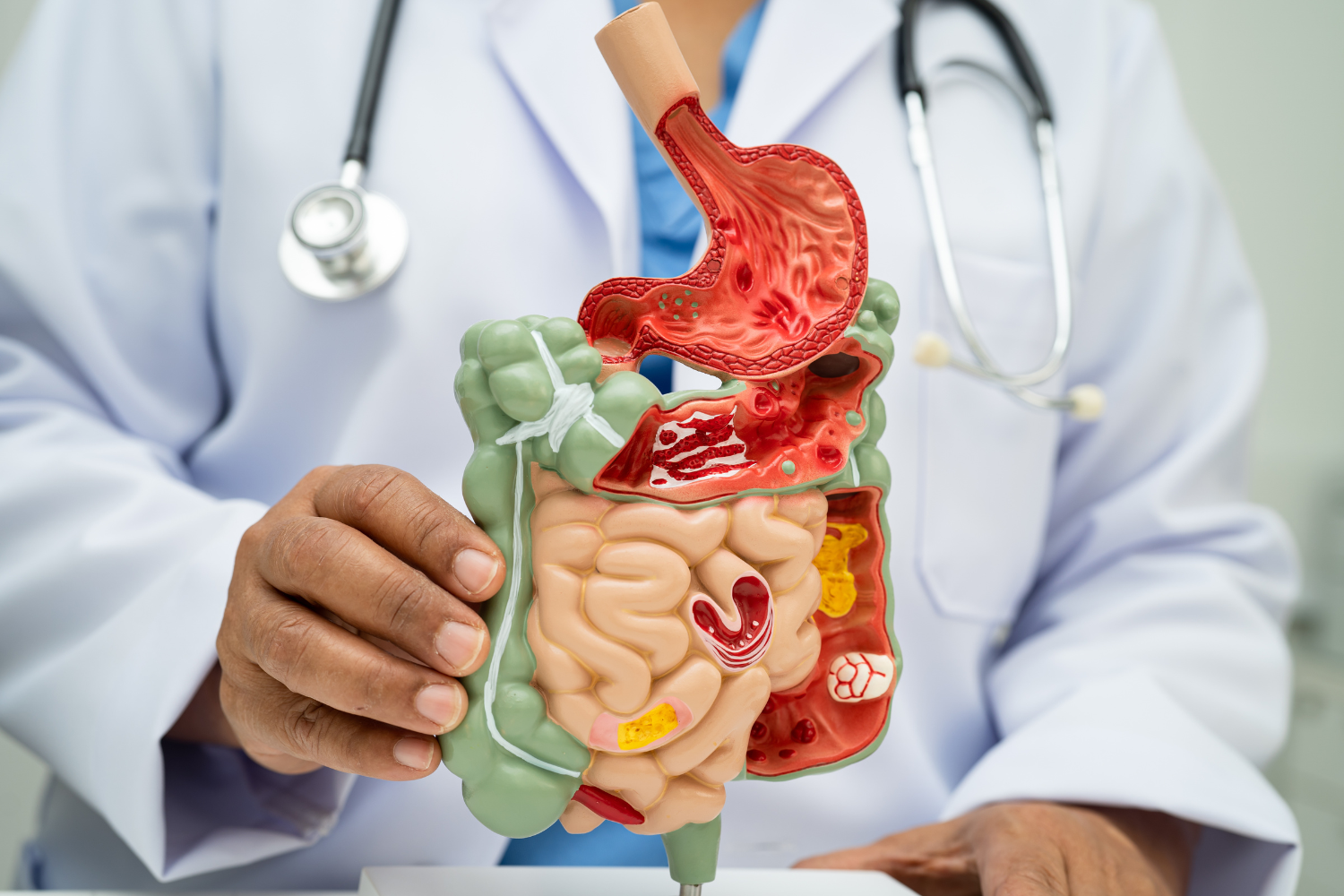Wine is often promoted for potential heart health benefits, but many people still wonder if it’s bad for the liver. Your liver plays a central role in breaking down alcohol, and even modest wine consumption can affect how liver cells function over time. While moderate drinking may pose less risk than excessive alcohol consumption or binge drinking, research shows that alcohol can affect liver cell function and may influence risk factors associated with certain liver health concerns.
This article looks at what current studies say about wine consumption, how alcohol intake can impact liver health, and what patterns may increase the risk of liver damage or long-term health problems.
How Your Liver Breaks Down Wine
Your liver works to filter and process alcohol from every alcoholic beverage you consume, including wine. It uses enzymes to break alcohol into byproducts that the body can remove, but this process can stress liver cells and, over time, contribute to liver damage if alcohol intake is high or frequent.
Alcohol Content in Wine vs Other Drinks
Wine generally has a higher alcohol by volume (ABV) than beer, but is served in smaller portions, so a standard serving contains about the same amount of alcohol as a standard beer. The standard drink measurement helps compare different alcoholic beverages.
|
Red Wine |
5 oz |
12–15% |
1 |
|
White Wine |
5 oz |
11–14% |
1 |
|
Light Beer |
12 oz |
3–4% |
0.5–0.8 |
|
Regular Beer |
12 oz |
4–5% |
1 |
|
Distilled Spirits |
1.5 oz |
40% |
1 |

What Happens in Your Liver When You Drink Wine
When you drink wine, alcohol moves from your digestive tract into your bloodstream and then to your liver. The liver processes alcohol using enzymes like alcohol dehydrogenase, converting it to acetaldehyde and then to acetate. High alcohol intake can overwhelm this system, which can stress liver cells and may influence factors associated with liver health.

Is Red Wine Different from White Wine for Your Liver?
From a liver health standpoint, red and white wine have similar alcohol-related effects. Both may negatively affect liver function when consumed in excess. While red wine contains antioxidants like resveratrol, the alcohol content still poses risks for developing cirrhosis, fatty liver, or alcoholic cirrhosis when drinking exceeds moderate guidelines.
How Wine Consumption May Influence Liver Function
Wine consumption can impact liver function depending on how much and how often you drink. Factors like alcohol use history, body mass index, and other health problems can significantly affect individual risk.
What Observational Studies Reveal About Frequent Wine Consumption
Population based study results show that frequent wine drinkers can have an increased risk of liver disease compared to people who rarely consume alcohol. Data from the National Health and Nutrition Examination Survey suggest that regular alcohol use, even in the form of wine, may influence markers associated with liver health over time.

Can Moderate Drinking Affect Liver Enzyme Levels?
Moderate alcohol consumption, such as one drink or a glass of wine per day, can still change liver enzyme levels. General clinical research center findings indicate that even modest wine consumption may lead to small but measurable changes in liver function tests, especially in people with risk factors like high blood pressure, excess body weight, or a history of alcohol abuse.
What Happens With Daily Wine Intake Over Time?
Drinking alcohol every day, even at moderate levels, can have cumulative effects on liver cells. Over the years, this pattern may affect liver tissue structure and function over time. People with conditions such as nonalcoholic fatty liver disease may face more liver damage from daily wine intake due to the added strain of processing more alcohol.
What Research Says About Wine Compounds and Liver Function
Wine contains naturally occurring compounds that may interact with liver metabolism in both helpful and harmful ways. Understanding these effects can help balance the potential benefits with the well-documented risks of alcohol consumption.
The Role of Resveratrol in Liver Metabolism
Resveratrol, an antioxidant found mainly in red wine, has been studied for its possible role in reducing inflammation and supporting certain liver functions. Some studies have examined resveratrol’s relationship with oxidative stress in liver cells.
But more research is needed to understand its impact on people. Keep in mind, these potential benefits do not offset the risks linked to compromised liver function when wine consumption exceeds recommended guidelines.

Balancing Cardiovascular Findings With Liver Considerations
Studies often highlight modest wine consumption for potential heart health benefits, but liver health professionals caution that these effects must be weighed against alcohol-related risks. For people with certain risk factors, even light drinking may contribute to liver problems over time, but risk levels vary and are influenced by overall health, genetics, and lifestyle.
How Small Amounts of Wine Are Discussed in Clinical Research
General clinical research center studies and preventive medicine reviews show that small amounts of wine—often defined as one drink per day—are linked to lower cardiovascular events in some age groups. Still, alcohol affects the liver regardless of source, and even light beer or distilled spirits can contribute to liver damage over time. For those with nonalcoholic fatty liver disease, complete abstinence is often recommended.
Understanding Intake Thresholds in the Context of Liver Support
Knowing how much alcohol is considered “moderate” helps in making informed choices to support liver health and reduce the risk of alcohol related liver problems.
How ‘Moderate’ Drinking Is Defined in Studies
In most population based studies, moderate drinking is defined as up to one drink per day for women and up to two for men. A standard drink is about 5 ounces of wine, 12 ounces of light beer, or 1.5 ounces of distilled spirits. Exceeding these amounts regularly can negatively affect liver function and long-term liver health.
Why Gender and Age Influence Alcohol Metabolism
Women and older adults often metabolize alcohol differently than younger men due to body composition, hormone levels, and liver enzyme activity. This means the same glass of wine can have a stronger effect, potentially placing additional strain on liver function in younger women and older age groups.
What Liver-Focused Health Professionals Suggest
Health professionals specializing in liver care recommend keeping alcohol intake within safe limits or choosing complete abstinence if you have any form of liver disease. They may also suggest lifestyle steps like weight loss, balanced nutrition, and avoiding excessive alcohol intake to help support long-term liver health.
Monitoring Your Body’s Response to Regular Wine Intake
Tracking how your body responds to wine consumption can help catch early signs of liver stress before serious problems develop.
How to Recognize When Your Alcohol Intake May Need Adjusting
Signs such as persistent fatigue, digestive tract discomfort, or unexplained weight changes may signal that your alcohol intake is affecting liver health. People with a history of high alcohol consumption should be especially alert to these changes.
How Clinicians Evaluate Liver-Related Biomarkers
Doctors use blood tests to measure liver enzymes and other markers that may reflect changes in liver tissue or function. If results show elevated enzymes, your clinician may recommend reducing alcohol use or stopping drinking alcohol altogether to allow liver cells to recover.
Questions to Ask if Considering a Drinking Break
If you are thinking about taking a break from alcohol, having the right questions prepared can guide a more productive conversation with your healthcare provider:
-
How long should I stop drinking to see improvements in my liver health?
-
Which tests will help monitor my liver function during this period?
-
Do I have any risk factors that make wine consumption more harmful?
-
Could modest wine consumption be safe for me after my liver improves?
-
What nutrition or lifestyle changes can further protect my liver?
Tips to Reduce Liver Strain While Drinking Wine
Making small changes to your drinking habits can help lower the impact of wine on your liver and reduce the risk of long-term alcohol related liver problems.
Spacing Out Your Drinking Days
Giving your liver rest days between drinking alcohol allows it time to repair liver cells and clear toxins. Spacing out drinking days may help reduce strain on the liver, which some researchers believe could lower certain health risks.
Eating Before You Drink
Having a balanced meal before consuming wine slows alcohol absorption in the digestive tract. This can help lessen how much alcohol affects your liver at once, lowering the immediate strain on liver function.
Staying Hydrated and Limiting Quantity
Drinking water alongside wine supports hydration, but it does not offset the effects of alcohol on the liver. Staying hydrated also supports overall health and may help offset some short-term effects of alcohol use.

What Doctors Really Say About Wine and Liver Health
While wine may be a preferred alcoholic beverage for some, it is not without risk. Research shows that even modest wine consumption can impact liver health over time, especially in people with existing risk factors or a history of excessive drinking.
Doctors recommend staying within moderate drinking limits, paying attention to your body’s response, and considering lifestyle habits that support long-term liver health. Some people choose hydration-focused products or dietary supplements, such as those from Drinkwel's DHM with NAC, as part of their overall wellness routine. Talk to your healthcare provider about what’s appropriate for your needs.
Frequently Asked Questions
Is red wine better or worse than other alcohols for your liver?
It has similar risks as other alcoholic beverages, and its alcohol content can still lead to liver damage if consumed excessively.
How do researchers define moderate wine intake?
Most studies define it as up to one glass of wine per day for women and up to two for men.
What do studies show about the long-term effects of daily wine?
Daily wine drinking, especially above moderate levels, is associated with changes in liver health markers.
Should people concerned about liver health limit wine?
Yes, limiting or stopping wine consumption can help support healthy liver function.
Does wine increase liver enzymes?
Yes, even moderate drinking can raise liver enzyme levels in some individuals.
References
-
Agarwal, S., Fulgoni, V. L., 3rd, & Lieberman, H. R. (2016). Assessing alcohol intake & its dose-dependent effects on liver enzymes by 24-h recall and questionnaire using NHANES 2001-2010 data. Nutrition journal, 15(1), 62. https://doi.org/10.1186/s12937-016-0180-y
-
Baur, J. A., & Sinclair, D. A. (2006). Therapeutic potential of resveratrol: the in vivo evidence. Nature reviews. Drug discovery, 5(6), 493–506. https://doi.org/10.1038/nrd2060
-
Izzo, C., Annunziata, M., Melara, G., Sciorio, R., Dallio, M., Masarone, M., Federico, A., & Persico, M. (2021). The Role of Resveratrol in Liver Disease: A Comprehensive Review from In Vitro to Clinical Trials. Nutrients, 13(3), 933. https://doi.org/10.3390/nu13030933
-
Kim, W. R., Brown, R. S., Jr, Terrault, N. A., & El-Serag, H. (2002). Burden of liver disease in the United States: summary of a workshop. Hepatology (Baltimore, Md.), 36(1), 227–242. https://doi.org/10.1053/jhep.2002.34734
-
Rehm, J., & Roerecke, M. (2017). Cardiovascular effects of alcohol consumption. Trends in cardiovascular medicine, 27(8), 534–538. https://doi.org/10.1016/j.tcm.2017.06.002
-
Rehm, J., & Shield, K. D. (2019). Global Burden of Alcohol Use Disorders and Alcohol Liver Disease. Biomedicines, 7(4), 99. https://doi.org/10.3390/biomedicines7040099
-
Roerecke, M., & Rehm, J. (2014). Alcohol consumption, drinking patterns, and ischemic heart disease: a narrative review of meta-analyses and a systematic review and meta-analysis of the impact of heavy drinking occasions on risk for moderate drinkers. BMC medicine, 12, 182. https://doi.org/10.1186/s12916-014-0182-6
-
Zakhari S. (2006). Overview: how is alcohol metabolized by the body?. Alcohol research & health : the journal of the National Institute on Alcohol Abuse and Alcoholism, 29(4), 245–254. https://pubmed.ncbi.nlm.nih.gov/17718403/



